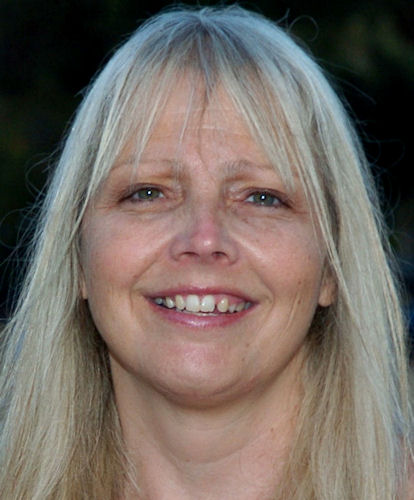COMMENTARY: SUSAN WADE - THEY’RE RACERS (HOLD THE ASTERISKS)

Diversity in NHRA drag racing, taken in the historic sense, undeniably is a right fulfilled, a blessing, a mark of acceptance, welcome, and forward-thinking.
But frankly, in its practical sense, diversity has become an exhausted buzzword.
With Top Fuel’s Antron Brown and Pro Stock’s Erica Enders clinching their respective series championships last weekend at The Strip at Las Vegas Motor Speedway, the tattered old blanket has been hauled out of the closet and paraded around again.
“The funny part is, like, we talk about this all the time – this ain't nothing new for our sport. That's the honest truth about it,” Brown said. “It goes way back to Shirley [Muldowney, the three-time Top Fuel champion] back in the '70s. You know what I mean?
“That's what the sport of drag racing is. We all respect one another, not for what gender or race we are. We're racers,” he said.
“I've always just wanted to be a racer. That's exactly what I am,” Enders said. “I'm not just the best female Pro Stock driver, I'm the best Pro Stock driver right now, because I have the best team and we won the championship again.
“The female aspect of it, it's a question I get in every interview that I do. It's just part of the program. It's of interest to the fans, it's of interest to the media. It's awesome because it's a male-dominated sport. We're able to succeed in it regardless of gender, regardless of race for Antron (Brown),” she said.
“I think it's awesome. It just goes to show what people are capable of. It doesn't matter where you're from, the color of your skin, what gender you are, what religion you are, we're race car drivers. That's what I've strived to be,” Enders said. “I think the more successful we are on the racetrack, the less people are going to look at the girl aspect of it.”
They only can hope so, for they didn’t enter the sport on some sort of diversity-driven fast track.
“I was a kid walking around the local drag strips, my dad and uncle racing the sportsman [races]. I'm sure Del grew up that way. Erica grew up in junior dragsters. It's all we knew. We were working on cars and doing stuff,” Brown said.
He said being a black driver is far less important than being part of a sport that is open to all fans, whether it’s racing or just visiting in the pits and watching from the grandstands.
“The thing about it is, what it gives me is a great sense of pride of our sport, NHRA racing, because it has so many openings, and it's wide open for anybody to come out and race, whether it's on a moped, a go-kart, a four-wheeler, Junior dragsters now, any kind of fast vehicle, doing it in a controlled environment. I think that's something that makes our sport so special,” Brown said.
“I was able to walk up as a kid and see my heroes and see how great this sport was. That gave me my sense of hope to becoming who I am today because I was able to see it, touch it, and say, ‘Hey, I could be here one day.’ That's something that's so special about our sport: You're able to come out and see the dream. When you're able to see it, touch it, feel it, it's very easy for you to become that dream. I'm living proof of it because I'm living the dream every day,” he said.
The same sentiment likely would come from two-time Funny Car champion Cruz Pedregon, who is proud of his family’s Mexican heritage, or 2009 Pro Stock Motorcycle champion Hector Arana, a Puerto Rico native.
Enders recognizes that the distinctions make the job easier for folks such as Terry Blount, the NHRA’s vice-president of public relations and communications. Part of his task is to shepherd into the NHRA press room all the stick-and-ball sheep who might not have been exposed to the world’s quickest and fastest sport.
So if it serves a useful purpose, diversity is a necessary-annoyance topic.
All political-correctness aside, Enders said, “I think it's awesome and it's interesting. I'm proud to be a part of the female movement with Alexis [DeJoria] and Courtney [Force] and Brittany [Force] and the other ladies out there who are competing and doing wonderful in our sport. It's really neat.
“It's a double-edged sword. I'm proud of it. I'm proud to be a female racer. I'm proud to have the records that we have for females in our sport. My goal is to continue to strive to be the best drag racer in the world. I've got a long ways to go to catch Angelle [three-time Pro Stock Motorcycle champion Sampey], but that's my next goal. We'll see how it goes.”
It seems especially odd for “diversity” to pop into the picture again, considering both Brown and Enders are second-time champions. And if Enders does win another championship, she won’t be the first or even the second female to earn three titles. So everyone but Terry Blount might want to store the “D-word” in a display case at the Wally Parks Museum, for posterity.





































